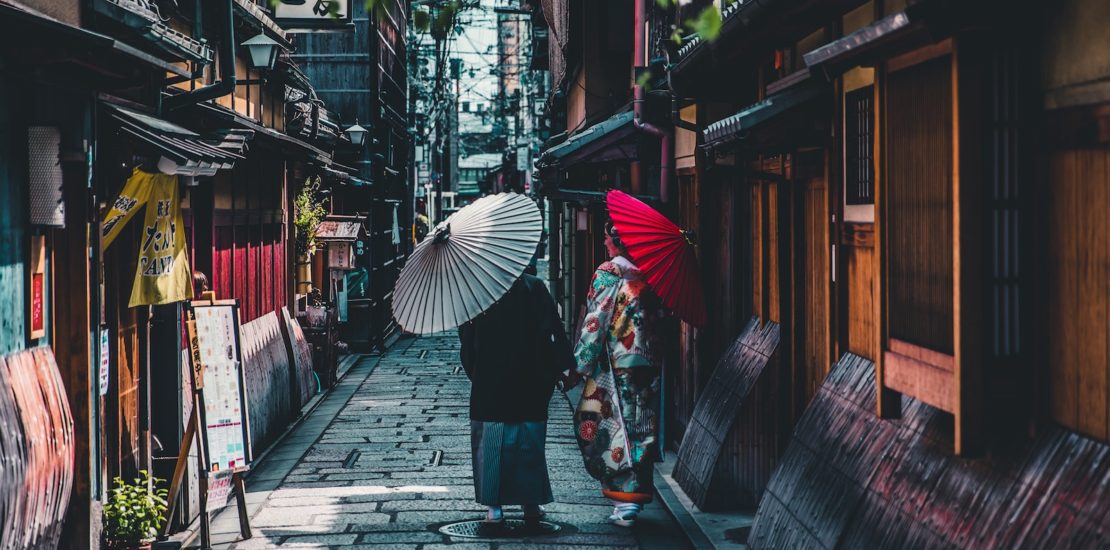There are currently sixteen national holidays in Japan. They were established by the Public Holiday Law in 1948.

In Japan, Public Holidays are called 国民の祝日 (kokumin no shukujitsu), and there are currently 16 national, government-recognized holidays throughout the year. They were established by the Public Holiday Law (国民の祝日に関する法律, Kokumin no Shukujitsu ni Kansuru Hōritsu) in 1948.
If a national holiday happens to fall on a Sunday, the following Monday will also be turned into a holiday. This is called Compensatory Public Holiday (振替休日, Furikae Kyujitsu). Additionally, a normal day which happens to be sandwiched by 2 national holidays can be turned into a holiday.
Below are the 16 Public Holidays of Japan.
January 1st – New Years
(お正月, shogatsu)
This is the most important holiday in Japan which celebrates the new year as it marks the beginning of the year’s public holidays. Most workplaces will close from December 29th to January 3rd. There are many traditions people abides to such as decorating their homes and entrances with ornaments made of pine, bamboo, and plum trees; 初詣 (Hatsumode) going to Shrines or Temples to pray, and eating 年越しそば (toshikoshi soba) which symbolizes longevity.
Second Monday of January – Coming of Age
(成人の日, Seijin no Hi)
This is the day when people who have turned 20 years old are congratulated and honored as they have officially become adults in Japan. It marks the age where they are now fully responsible citizens in society where they also have newfound liberties such as being able to legally drink, smoke and gamble.
February 11 – National Foundation Day
(建国記念の日, Kenkoku Kinen no Hi)
This day celebrates the mythological foundation of Japan and the accession of its first emperor, Emperor Jimmu, in 660BC.
February 23 – The Emperor’s Birthday
(天皇誕生日, Tennō Tanjōbi)
This day celebrates the Birthday of the current reigning Emperor.
March 3 – Doll’s Festival
(ひなまつり, Hina Matsuri) or Girl’s Day
This is a day dedicated to girls where parents celebrate and pray for good health and happiness for their daughters. Hina Dolls are displayed on red carpeted platforms which represent the Emperor, Empress, attendants, and musicians in traditional court dress from the Heian Period.
March 20 – Vernal Equinox Day –
(春分の日, Shunbun no Hi)
This day marks the end of winter and the beginning of Spring. Some families celebrate this day by getting together or visiting family graves.
Golden Week (ゴールデンウィーク)
Golden Week is a collection of national holidays that are within 7 days which may include weekends. It is one of the busiest holiday seasons in Japan where many take days off to travel.
May 3 – Constitutional Memorial Day
(憲法記念日, Kenpo Kinenbi)
This day marks the new postwar constitution that was put into effect in 1947.
May 4 – Greenery Day –
(みどりの日, Midori ni Hi)
This day celebrates nature and to be thankful for blessings. Originally, this day was celebrated on April 29, the Birthday of former Emperor Showa, because he loved plants and nature.
May 5 – Children’s Day –
(こどもの日, Kodomo no Hi) or Boy’s Day
Although it reads children’s day, this day is actually a Boy’s Day where families pray for the health and future success of their sons. Carp Streamers and Samurai dolls are hung and displayed which symbolizes strength, power and success.
July 23 – Ocean Day
(海の日, Umi no Hi)
This day celebrates the ocean and marks the return of Emperor Meiji from a boat trip to Hokkaido in 1876.
July 24 – Sports Day –
(スポーツの日, Supōtsu no hi)
This holiday was originally called Health and Sports Day (体育の日, Taiiku no hi) and was held on the second Monday of October to commemorate the opening of the 1964 Summer Olympics. Now it exists to promote sports and an active lifestyle.
This day was moved to July 24 to coincide with the opening of the Summer Olympics which was sent to take place but was postponed due to the COVID-19 Pandemic.
August 11 – Mountain Day
(山の日, Yama no Hi)
This day is celebrated to appreciate the mountains. Established in 2014 and first held in 2016 which was intended to coincide vacation time during the Obon Festivals held in mid-August.
Silver Week (シルバーウィーク)
Silver Week is a Japanese Holiday week that features consecutive holidays applied in September. It features Respect for Ages Day, Autumn Equinox Day and Citizen’s Day (Kokumin no Kyujitsu ). In Japanese Law, if there is only one-holiday in between two public holidays, that day would also become an additional holiday.
Third Monday of September – Respect for Ages Day
(敬老の日, Keirō no Hi)
This day was established to respect the elderly and to celebrate long life.
September 22 or 23 – Autumn Equinox Day
(秋分の日, Shūbun no Hi)
This holiday marks the day the sun crosses over the equator from the Northern to Southern Hemisphere but is not officially declared until February of the previous year because of the necessity of the recent astronomical measurements.
November 3 – Culture Day
(文化の日, Bunka no Hi)
This holiday commemorates November 3, 1946 in which the Constitution was announced. It is a day that recognizes peace, freedom and promotes culture.
November 23 – Labour Day Thanksgiving
(勤労感謝の日, Kinrō Kansha no Hi)
This day honours labour, workers, celebrating production and giving others thanks.



